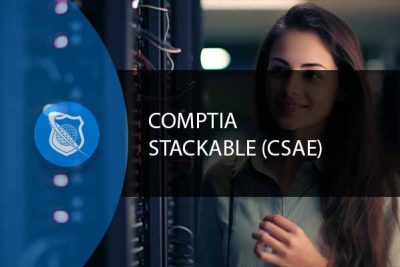
Lifetime
An ITU Online Training exclusive. The only Buy Once, Never Pay for IT training again program available. Plus, get all new and updated content for life.

With an All-Access Pass, you get access to every current and future ITU course. Access over 2,500 hours of on-demand IT Training 24/7. With over 13,000 on-demand training videos and 19,000+ practice questions, you'll have the tools to excel in the critical IT skills needed to elevate your IT Career. Our All-Access pass is available in three affordable plans.
Paris is the capital of France.
Tokyo is the capital of Japan.
Most Popular
Categories


With an All-Access Pass, you get access to every current and future ITU course. Access over 2,500 hours of on-demand IT Training 24/7. With over 13,000 on-demand training videos and 19,000+ practice questions, you'll have the tools to excel in the critical IT skills needed to elevate your IT Career. Our All-Access pass is available in three affordable plans.

ITU provides a vast array of IT-focused on-demand training designed to help you excel in both entry-level and advanced IT skills. Browse our most popular training or take a deper dive into our robust catalog of training categories.
Popular Courses All Categories
 CompTIA
Train for a globally recognized IT certification with our comprehensive CompTIA courses.
A+ | Network+ | Security+
CompTIA
Train for a globally recognized IT certification with our comprehensive CompTIA courses.
A+ | Network+ | Security+
 Cybersecurity
Master the art of combating cybersecurity threats and become a cyber hero.
Ethical Hacking (CEH) | CISSP | CISM
Cybersecurity
Master the art of combating cybersecurity threats and become a cyber hero.
Ethical Hacking (CEH) | CISSP | CISM
 Cloud Computing
An essential skill set in today's IT environments. Learn cloud computing platforms
Azure Administrator | Google Cloud | AWS Practitioner
Cloud Computing
An essential skill set in today's IT environments. Learn cloud computing platforms
Azure Administrator | Google Cloud | AWS Practitioner
 Project Management
Key to successful projects, learn the skills and methodolgy behind project management.
PMP | Risk Mgmt | Agile PM
Adobe
Business & Management
Cisco
Cloud Computing
CompTIA
Computer Support
Cybersecurity
Data Administration
Data Analysis
Development & Programming
Marketing & Social Media
Medical Coding & Billing
Microsoft
Microsoft Office
Network Administration
Networking & Software
Project Management
Web Development
Project Management
Key to successful projects, learn the skills and methodolgy behind project management.
PMP | Risk Mgmt | Agile PM
Adobe
Business & Management
Cisco
Cloud Computing
CompTIA
Computer Support
Cybersecurity
Data Administration
Data Analysis
Development & Programming
Marketing & Social Media
Medical Coding & Billing
Microsoft
Microsoft Office
Network Administration
Networking & Software
Project Management
Web Development

If you’re an IT professional with five or more years of experience, the CompTIA CSAE is a stackable certification designed just for you. The accompanying ITU Certification Path provides all the learning materials to help ace your exams in Security+, Cybersecurity Analyst (CySA+), and CASP+. So let’s get started on achieving this sought-after recognition!
Included In This Course
Closed Captions
Certificate of Completion
Course Description

The CompTIA CSAE is a stackable certification series by CompTIA. It is designed for IT professionals with 5 or more years of experience. The ITU Certification Path for the CompTIA CSAE certification consists of the learning materials to allow you to study for and pass the CompTIA Security+, CompTIA Cybersecurity Analyst (CySA+) and CompTIA CASP+ exams. It also provides access to self-paced IT online training from ITU, the worlds leading IT training and professional development provider. The CompTIA CSAE certification path is perfect for those who want to take their career to the next level and become a dominant leader and hone their cybersecurity mastery in the IT security field.
Secure an exceptional bargain on this training series; don’t miss out on this limited-time opportunity to save! View our Master CompTIA Training Series which includes the courses provided in this CompTIA certification training series.
Completing this career pathways and passing the three exams means you end of with three CompTIA certifications and are a designated a CompTIA Security Analytics Expert (CSAE).
The three courses contained in this path are:
The certifications are divided into experience levels, organized by their associated pathways:
Upon passing the relevant exams provided by CompTIA, you will be rewarded with your very own CSAE certification badge.
By obtaining the CompTIA Security Analytics Expert (CSAE) certification, you will have shown proficiency and deeper mastery in security analytics and be able to conceptualize, engineer and build cybersecurity solutions that meet regulations. With this technical knowledge comes the ability to research cyber security through data analytics and develop advanced security program that is highly sought after by many employers and will provide you with the competitive edge to propel your IT Career. With your technical skills, you will:
To explore the potential of CompTIAs Stackable Certifications, please pay a visit to their official website. Pricing for these certifications will differ depending on the exam. To find out current pricing information, head over to CompTIAs Pricing page online.
The CompTIA CSAE is a stackable certification designed for IT professionals with five or more years of experience. The certification includes materials to study for and pass the CompTIA Security+, CompTIA Cybersecurity Analyst (CySA+), and CompTIA CASP+ exams.
Obtaining the CSAE certification will demonstrate proficiency and deeper mastery in security analytics. You’ll be able to conceptualize, engineer, and build cybersecurity solutions that meet regulations. This certification is highly sought after by many employers and will provide a competitive edge in your IT career.
The course provides a comprehensive path to help you ace your exams in Security+, Cybersecurity Analyst (CySA+), and CASP+. After successful completion, you’ll have a deep knowledge of security concepts, be able to identify security risks, develop security incidents based on software systems, assess Cloud-based network security issues, map analytics to networks, and test applications for vulnerabilities.
The course is taught by Chrys Thorsen, an education and technology expert who specializes in enterprise-level IT infrastructure consulting and certified training-of-trainers; John Abueg, a Senior Technical Instructor at Ft. Gordon in Augusta, Georgia; and Brian O’Hair, an IT Training Professor with over 25 years of experience in the IT industry.
After completing the CSAE certification and passing the three exams, you’ll be designated a CompTIA Security Analytics Expert. The certification covers three experience levels: Specialist for IT professionals in the early stages of their career (0-2 years of experience), Professional for experienced IT professionals with a minimum of two to five years in the field, and Expert for experienced IT professionals with 5+ years of expertise.

Course Outline
Chrys Thorsen is an education and technology expert who specializes in enterprise-level IT infrastructure consulting and certified training-of-trainers. In her career, she has garnered over 50 IT Certifications including CISSP, CISA, CEHv12, PenTest+, CompTIA CNVP, Cisco CCSI/CCNP, Microsoft Cloud and on-premises technologies, VMware vSphere, and many more. She has also authored 40 published certification textbooks, and over 35 full-length IT certification video courses.
When not working in the United States, Chrys spends her time abroad capacity-building IT literacy in developing nations in Sub-Saharan Africa. Her client list has included: the US Federal Government, the Republic of Zambia Ministry of Health, Cavendish University Zambia, Accenture, JP Morgan Chase, the US Centers for Disease Control and Prevention, the Elizabeth Glaser Pediatric AIDS Foundation (EGPAF), Hughes Aircraft, Microsoft, and many more.
Chrys lives by, and is fond of repeating, her professional creed:
“The only true measure of success for any project or training is results on the ground. Everything else is just noise.” “I teach what I deploy; I deploy what I teach.”
John is a Senior Technical Instructor at Ft. Gordon in Augusta, Georgia, instructing U.S. military and civilian employees on a number of cybersecurity subjects and certifications. He has been an IT professional for well over two decades, as prior to his current job he retired from the Army after a 20-year career as a soldier in the signal branch (IT and communications). John holds a bachelor’s degree in Computer Science from the University of Maryland Global Campus as well as the following IT certifications: Network+, Security+, Cybersecurity Analyst (CySA+), CompTIA Advanced Security Practitioner (CASP+), Certified Information Systems Security Professional (CISSP).
Professor Brian O'Hare has over 25 years of experience in the IT industry. He started off in web design as a Corporate Webmaster but wanted to understand how the internet worked. While working towards his bachelor’s in computer science, he studied and got his MCSE (Microsoft Certified Systems Engineer) and his MCT (Microsoft Certified Trainer). Once certified he paid for his degree working as a Network Engineer and then a Trainer for others wanting to learn about Microsoft’s Desktop and Server products.
Start this course for free with our 10-day trial of the all-access subscription providing access to over 2,600 hours of training.
$59.00

Monthly All-Access Subscription
7 Days Free - $39.00 / month
A great option at an affordable monthly price.
Annual All-Access Subscription
$229 / year
A discounted price when paying for your All Access library on an annual basis.
Lifetime All-Access Library
$379 One time payment
Exceptional Value. Pay once, never have to buy IT training again.
$49.00
In this course you will gain the CySA+ objectives to prepare for the CySA+ Cert. You’ll learn how to apply behavioral analytics to networks and devices with the intention to prevent, detect, and combat cybersecurity threats via continuous security monitoring. At the conclusion of the course, you’ll have the knowledge needed to pass the CompTIA CySA+ (CS0-002) certification exam, which validates an IT professional’s ability to proactively defend and continuously improve the security of an organization.
$59.00
The CompTIA CSIS is a progressive certification in the IT field that was crafted by CompTIA. It is ideal for those with 0-2 years of experience who are looking to upskill. At ITU, we offer an extensive Certification Path which comes bundled with educative materials and preparing you to pass the three exams;CompTIA A+, Comptia Network+ and Comptia Security+.
$49.00
In this CompTIA Linux course you will learn how to perform maintenance with the command line, Linux Installation and Package Management, configure a workstation and be able to configure a basic network. This is a junior level Linux Administrator course.

Unlock endless learning opportunities with over 2,500 hours of IT training at our lowest price ever. Plus, get all new and updated online courses for free while your subscription remains active.
Cancel at your convenience. This exceptional deal on IT training provides you access to high-quality IT education at the lowest monthly subscription rate in the market. Boost your IT skills and join our journey towards a smarter tomorrow.